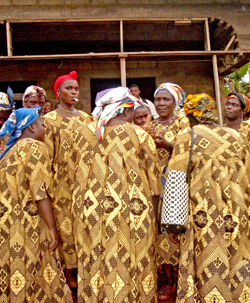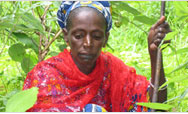You are here » Home » Telling Our Story
Success Story
A creative approach makes health care affordable
Affordable Health Care Saves Lives

| |
Photo: Abt Associates/Abdoulaye Ba
|
|
Women in Bangwa, Cameroon, gather to launch a community Mutual Health Organization.
USAID is helping communities find affordable health care options through a novel approach to health insurance.
|
The costs of health care services to patients in West Africa have been rising because governments can no longer afford to pay for public health care systems. Unlike most developed countries, the formal health insurance sector in West Africa covers only a small minority, primarily those working directly for governments or large corporations. This leaves most of the poor rural population — those most in need — unable to afford health services, especially in emergency situations.
In response, USAID is supporting the creation and expansion of Mutual Health Organizations (MHO) in West Africa. These organizations increase accessibility to health services among rural populations and informal sector workers. Participation in these organizations is voluntary, autonomous, and community-based. Individuals or households pay reasonable up-front contributions to finance part or all of their basic health care services when they become ill. Members join as part of a community, which together manages the plan and chooses the services that are covered. Community members negotiate the care package price with public or private health care providers.
For example, in Cameroon, USAID has helped launch three MHOs and provided technical assistance to a local organization to integrate health financing into existing community loan programs. These programs finance small business loans for community members. The new MHOs already have more than 700 member families, each with an average of five dependents.
The positive impact of increased access to health care is evident in these communities’ productivity, long-term health, and quality of life. At one MHO launching ceremony, the MHO committee president recalled the story of a child who died from gastroenteritis because her parents could not afford to take her to the hospital. The initiation of MHOs in this community, and in others throughout Africa, will prevent such tragedies in the future and enable parents and their children to live longer, more productive, and healthier lives.
Print-friendly version of this page (592kb - PDF)
Click here for high-res photo
Back to Top ^ | 

